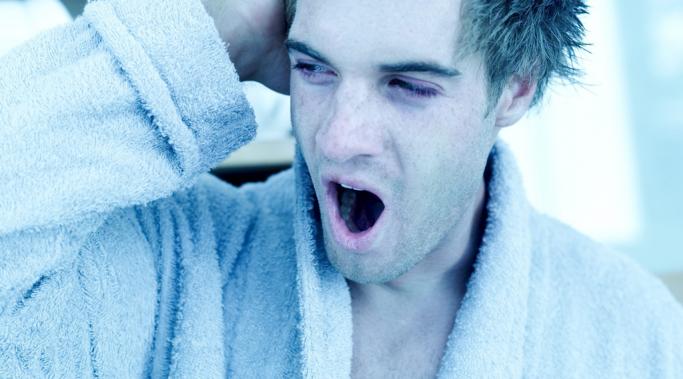I recently returned from a trip to Chicago. I was at the National Council’s Conference on Addiction and Behavioral Health. I had a great time and met lots of great people (including our own Randye Kaye, author of Mental Illness in the Family here at HealthyPlace).
But the conference was in Chicago, and while a great city, it did mean a day’s worth of travel and two time zone changes to get there. And travel has been known to really take it out of me.
But I have learned tips for navigating travel with less disruption to my bipolar disorder.
Impact of Bipolar
Stigma is something that can be seen outwardly like when a family member avoids you due to your depression or you’re passed over for a promotion because your coworkers discovered you’re diagnosed with schizophrenia. It’s also seen in public perceptions as noted in the Surgeon’s General report where 60% of people felt like people with schizophrenia behaved violently.
But the biggest danger of mental health stigma is when it’s felt inwardly. Because no matter how unfairly people treat you ourwardly, it’s nothing compared to the effects of feeling the stigma inside.
I am single. I have been single for a long time, actually. It’s OK; I don’t mind it that way. I have my dalliances, I have my friends and I have my cats. It’s a touch stereotypical, but it’s my life.
I have, however, fallen victim to an irrational line of thought from time to time – I really want to couple. Some of this desire is completely rational. It’s normal to want to spend Sundays in bed with someone and have someone to share orange juice with in the mornings.
What isn’t rational, though, is the idea that a relationship will make me “happy,” will make me “better.” In times when bipolar feels it’s darkest, more than anything I just want someone to hold onto even if holding onto someone doesn’t work.
Holding onto someone, however special, will not cure bipolar disorder.
I’m sitting on my red, plush couch in my living room and I have started crying. Tears well in my eyes at first while I try to convince them not to roll down my face and splash the back of my glasses. As usual, the tears don’t listen and soon my cheeks and lips and chin are wet with saline. I take off my glasses and put them on the wenge coffee table and my head falls into my hands. Loud crying now, choking sobs wrack my body as I feel the pain of illness that I had been pushing away for so long beat me once again.
And I wonder – will it get better?
Assisted outpatient treatment (AOT), also known as outpatient commitment (OPC), is a controversial program that you may know by the name “Laura’s Law” in California or “Kendra’s Law” in New York. These programs are designed to facilitate court-ordered outpatient treatment in a very small segment of the mentally ill population.
In other words, they force mental health treatment onto certain people.
But does forcing people into mental illness treatment actually help anyone? According to the Office of Justice Programs, yes, it does.
For a long time I didn’t wear sandals. No, not because I don’t like them or because my toes have an aversion to open air but because of the scars on my ankles – that’s where I used to cut. My ankles looked like there were pink, wriggly worms embedded in them.
And I was scared that everyone would see them and know what happened, know what I did.
I figured people would take one look at me (zero in on my ankles for some reason) and then judge me as being a freak and a lunatic and I would be ostracized from normal, human interaction.
That was a bit of an overreaction on my part driven by the shame of self-harming in the first place. I’ve gotten over it.
Natasha Tracy is not, in fact, my real name. It’s a nom de plume. Writers have a long history of writing under pen names for a whole variety of reasons but one of them has always been judgement. People will judge you, as a person, by what you write. Write erotica, for example, and get yourself a reputation as a slut.
And as a mental health writer, I face similar stigma. True, people aren’t likely to make inferences about my sexual nature (although it has happened) but they will make judgements about me as a person and certainly as an employee.
Because no matter how much I write about stigma and no matter how open people appear to be, a person with a mental illness is simply always assumed to be unequal to someone without a mental illness. Their point of view is always considered to be tainted by their illness. Their thoughts are never considered to be their own.
This was a question recently asked of me, “can people with a mental illness, like bipolar disorder, live alone?”
The answer to me was obvious – yes! Absolutely. Of course a person, even with a serious mental illness, can live alone.
But then I thought about it for a moment and maybe it’s not that simple. Maybe there are some tools that facilitate living on your own.
I have a friend with bipolar disorder. A nice girl. Fun. Charming. Intelligent. She’s lovely really. We email a lot and sometimes she makes me LOL.
But seeing her is very difficult. She has a lot of trouble sticking to any plans we might make. This is because she can never predict her mood. Even if she feels like going out the moment we make the plans, even if it seems like a fun idea then, when the time actually comes she may not feel like leaving the house.
I know how she feels.
Ideas that seem good on a Wednesday, when they actually arrive on a Friday suddenly seem like the biggest imposition in the world and seem as impossible as lifting a mountain.
So how does one make plans if one can never anticipate one’s mood?
I have said it again and again, what goes up, must come down and it usually does so with a resounding thud. A crater. An impact that puts you lower in the ground than before you started. In other words, a depression.
And that’s the problem with hypomania. For many people the hypomania itself really isn’t a huge deal (although for some hypomania in and of itself is damaging) but the period afterwards is devastating. It’s the hypomania hangover.

![MP900432825[1]](/sites/default/files/styles/blog_listing/public/uploads/2012/04/MP9004328251-1024x685.jpg?itok=Qp2qZbBY)
![MP900442827[1]](/sites/default/files/styles/blog_listing/public/uploads/2012/04/MP9004428271.jpg?itok=jPcAEaSI)






